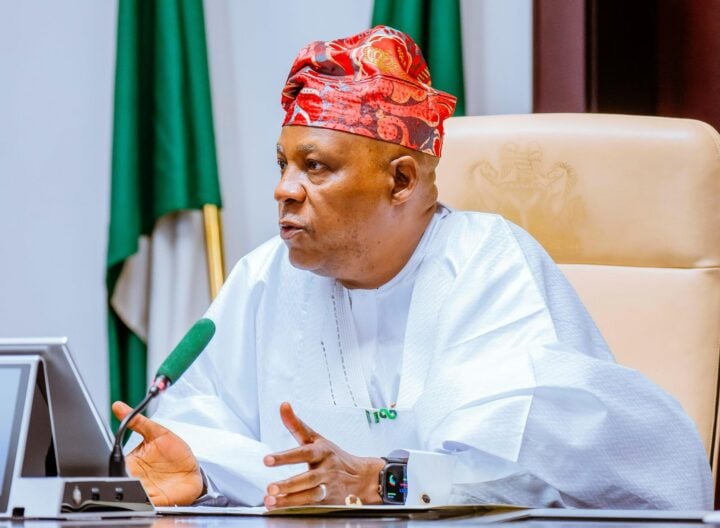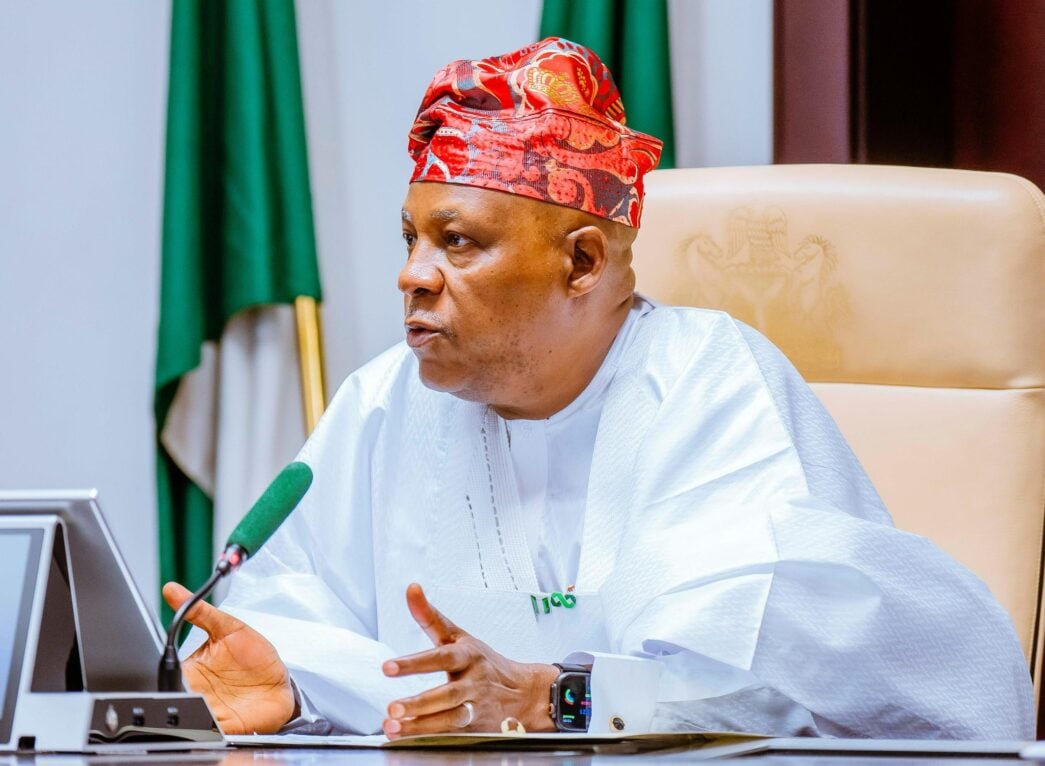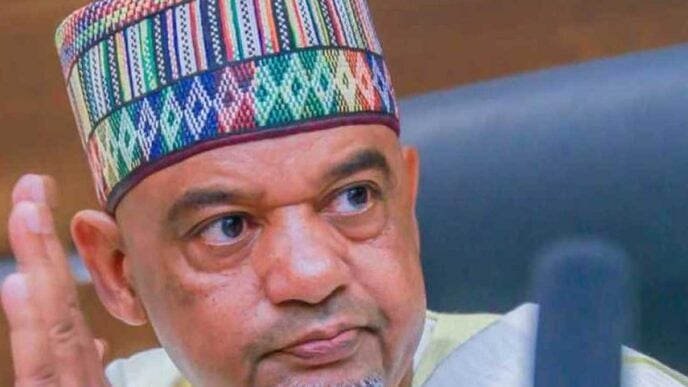Vice-President Kashim Shettima says Nigeria has secured over $400 million in new investment commitments for renewable energy manufacturing value chains.
Speaking at the launch of the Nigerian Renewable Energy Innovation Forum (NREIF) in Abuja on Tuesday, Shettima said the value chain cover solar panel assembly, battery recycling, and local component production.
The vice-president said the investment commitments were made through the engagements facilitated under the forum.
He also said Nigeria’s energy transition presents an investment opportunity worth over $410 billion by 2060.
Advertisement
Shettima’s comment followed the federal government’s efforts to localise renewable energy manufacturing and position the country as Africa’s clean-energy hub.
The vice-president said Nigeria’s clean-energy shift is not just an environmental imperative but a strategic economic move to build industries, create jobs, and strengthen national energy security.
“Nigeria’s energy transition presents an investment opportunity of over $410 billion between now and 2060,” Shettima said.
Advertisement
“More than $23 billion is required to expand energy access and connect the millions of Nigerians who still live in energy poverty.
“This is not merely a financial target — it is a call for innovation, collaboration, and bold investments that place Nigeria at the heart of Africa’s energy transformation.”
Shettima disclosed that over $400 million in new investment commitments have been secured for renewable energy manufacturing value chains, covering solar panel assembly, battery recycling, and local component production.
Also, he said the federal government’s goal is to deliver 277 gigawatts of total installed capacity by 2060, but achieving that ambition “demands more than investment; it demands innovation, local capacity, and commitment”.
Advertisement
The vice-president said the government’s ambition is for renewable energy to play a central role in powering homes, industries, and small businesses.
“This is our moment to lead — not follow — in Africa’s clean-energy revolution,” he said.
“Every investment and innovation we attract must translate into factories, jobs, and electrified communities.”
According to a statement shared by Rural Electrification Agency (REA) with TheCable, $435 million renewable energy investment agreements were signed by six states and private sector players to boost local manufacturing and clean energy deployment.
Advertisement
The agreements were facilitated by the REA and the Netherlands Development Organisation (SNV).
The states include Ogun state, where Renew Power Limited committed to developing 500 megawatts (MW), while Tranos will establish a 600MW renewable energy facility.
Advertisement
In Lagos state, Auxano Solar is set to deliver 150MW, and Vene Photovoltaic Technologies Limited will build a world-class solar recycling plant with a processing capacity of 2,484 tonnes per annum, alongside Greenlight Planet Sun King Nigeria Limited and Suntisolar Energy Africa Solar Limited.
Akwa Ibom state will host Tricell Solar Solutions (500MW) and IRS Green Energy (600MW) projects, while Kano state will see similar capacity expansions from the same firms.
Advertisement
In Bayelsa state, J Marine Logistics Limited will lead renewable energy initiatives, and in the federal capital territory (FCT), PVG Solar Limited is developing a 500MW solar power project.
FG TARGETS MANUFACTURING-LED TRANSITION
Advertisement
Speaking also, Adebayo Adelabu, minister of power, said the federal government aims to develop four gigawatts of solar manufacturing capacity per annum, supported by the Rural Electrification Agency (REA) and private developers.
The minister said the administration’s reforms, including the Electricity Act 2023, which devolves regulatory powers to states, are creating new markets for clean energy while improving liquidity and revenue in the power sector.
According to Adelabu, sector revenue grew 70 percent to N1.7 trillion in 2024, and is projected to exceed N2 trillion in 2025.
He added that President Bola Tinubu has approved a N4 trillion bond to settle verified debts owed to power generation and gas supply companies.
The minister also called the unbundling of the Transmission Company of Nigeria (TCN) into the Nigeria Independent System Operator (NISO) and Transmission Service Provider (TSP) a “long-awaited structural reform”.
“We have demystified the age-long problem in Nigeria’s power sector. Our focus has shifted from lamentation to execution. Nigeria is ready for a clean-energy industrial revolution,” Adelabu said.
On his part, Abba Aliu, managing director (MD) of the REA, said the agency’s active portfolio of over $3 billion positions Nigeria to translate renewable energy potential into domestic manufacturing capacity.
Aliu said the forum will facilitate the signing of $500 million worth of domesticated investment deals, spanning solar manufacturing, battery recycling, and local component production.
“We must go further — from deployment to domestication of the renewable energy value chain,” he added.
Aliu said the NREIF would serve as a marketplace for ideas and capital, connecting investors, innovators, and regulators to drive industrialisation in clean energy.












